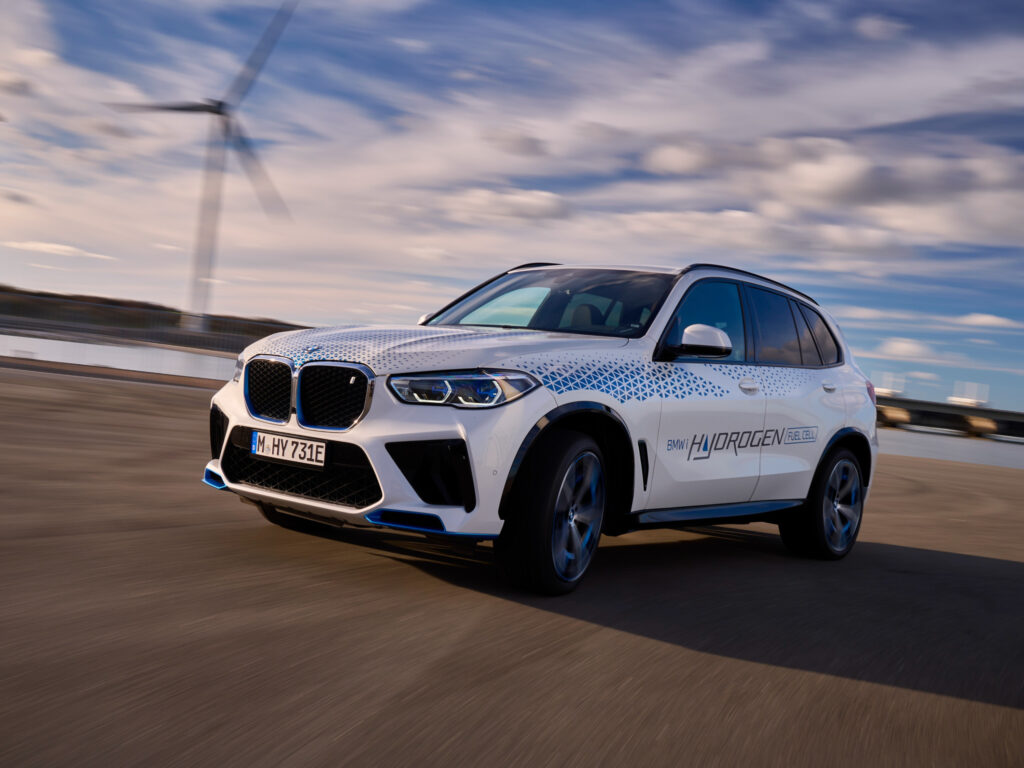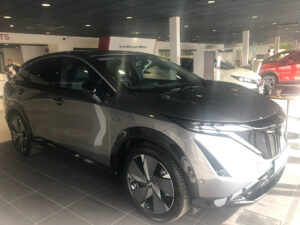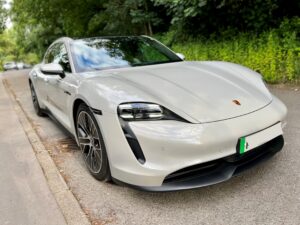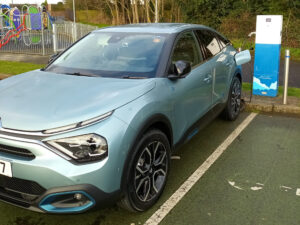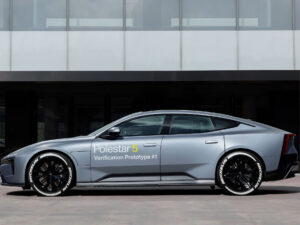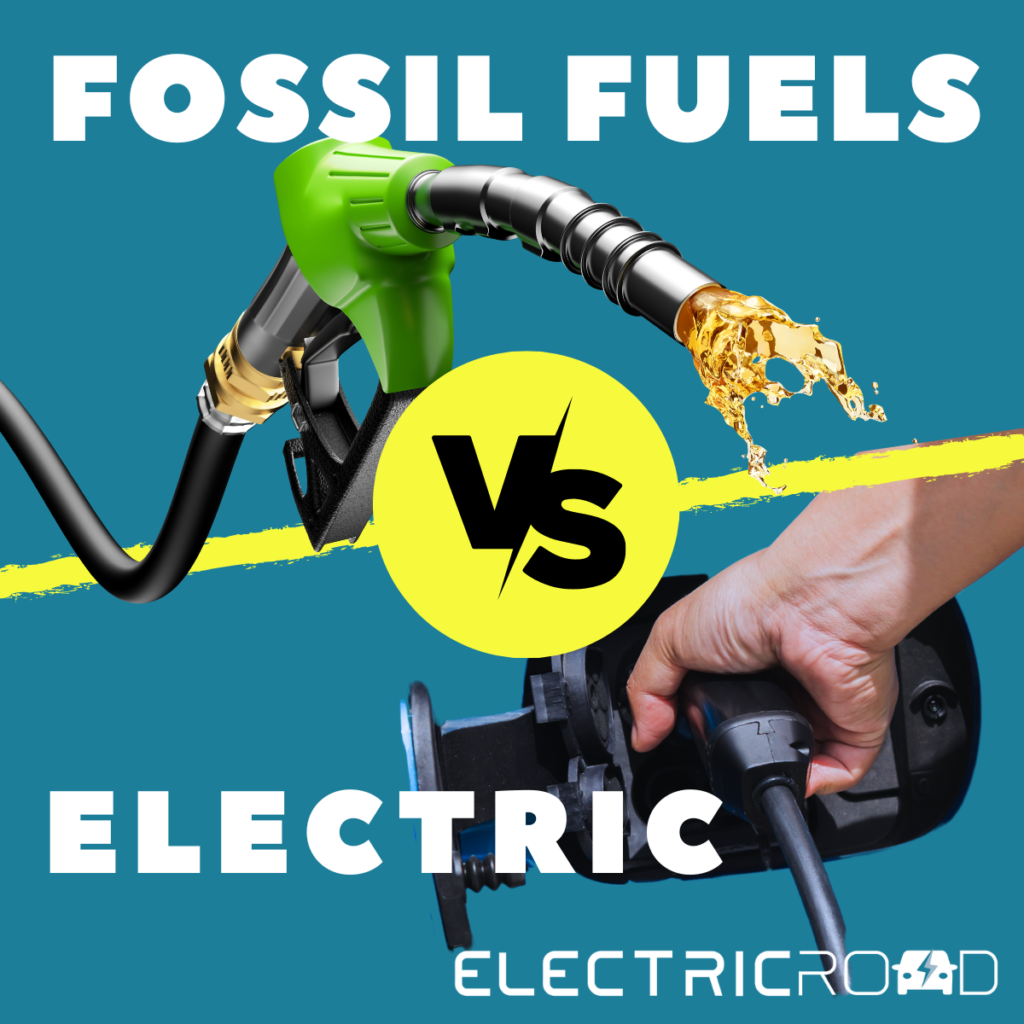After four years of development work, the BMW iX5 Hydrogen vehicle and project are entering a critical next phase.
The first vehicles are now entering a pilot fleet of under 100 vehicles.
The fleet is being deployed internationally for demonstration and trial purposes. This active driving experience will be the first chance for people not involved in the development process to gain a direct impression of what the BMW iX5 Hydrogen has to offer.
The BMW iX5 Hydrogen developed from the basis of the current BMW X5 and first unveiled as a concept at the IAA show in 2019. Initial prototypes were then made available at the IAA Mobility 2021 for visitors to experience in action as shuttle vehicles.
The BMW Group produces the fuel cell systems for the pilot fleet at its in-house competence centre for hydrogen in Munich. This technology is one of the core elements in the BMW iX5 Hydrogen and generates a high continuous output of 125kW/170hp.
A chemical reaction takes place in the fuel cell between gaseous hydrogen from the tanks and oxygen from the air. Maintaining a steady supply of both elements to the fuel cell’s membrane is of crucial importance for the drive system’s efficiency. In addition to the technological equivalents of features found on combustion engines, such as charge air coolers, air filters, control units and sensors, the BMW Group also developed special hydrogen components for its new fuel cell system. These include the high-speed compressor with turbine and high-voltage coolant pump, for instance.
The BMW Group sources the individual fuel cells from the Toyota Motor Corporation. The two companies have enjoyed a partnership for many years and have been collaborating on fuel cell drive systems since 2013.
Fuel cell systems are manufactured in two main steps, based on the individual fuel cells. The cells are first assembled into a fuel cell stack. The next step involves fitting all the other components to produce a complete fuel cell system.
Are you seriously considering your first or next EV? Then visit Electric Road’s CAR FINDER to get the right car for you!
The BMW iX5 Hydrogen is being built in the BMW Group’s pilot plant at its Research and Innovation Centre (FIZ) in Munich. This is the interface between development and production where every new model from the company’s brands is made for the first time. Around 900 people work there in the body shop, assembly, model engineering, concept vehicle construction and additive manufacturing.
They are tasked with ensuring that both the product and the manufacturing process are ready for series production. In the case of the BMW iX5 Hydrogen, specialists in hydrogen technology, vehicle development and initial assembly of new models have been working closely together to integrate the drive and energy storage technology.
The hydrogen needed to supply the fuel cell is stored in two 700-bar tanks made of carbon-fibre reinforced plastic (CFRP). Together these hold almost six kilograms of hydrogen, enough to give the BMW iX5 Hydrogen a range of 504km (313 miles) in the WLTP cycle. Filling up the hydrogen tanks only takes three to four minutes so the BMW iX5 Hydrogen can also provide the driving pleasure for which BMW is renowned over long distances, with just a few, short stops along the way.
Summary of the technical data, performance, fuel consumption and range figures for the BMW iX5 Hydrogen:
Maximum output of overall drive system: 295kW/401hp
Electric continuous output of the fuel-cell system: 125kW/170hp
Maximum output of the battery (lithium-ion technology): 170kW/231hp
Maximum output of the highly integrated electric drive unit: 295kW/401hp
Capacity of the hydrogen tanks: 6kg hydrogen (gaseous)
Acceleration 0-100km/h (62 mph) < 6 secs
Top speed: Over 180km/h (112 mph)
Hydrogen consumption in the WLTP cycle: 1.19kg/100km
Range in the WLTP cycle: 504km (313 miles).


